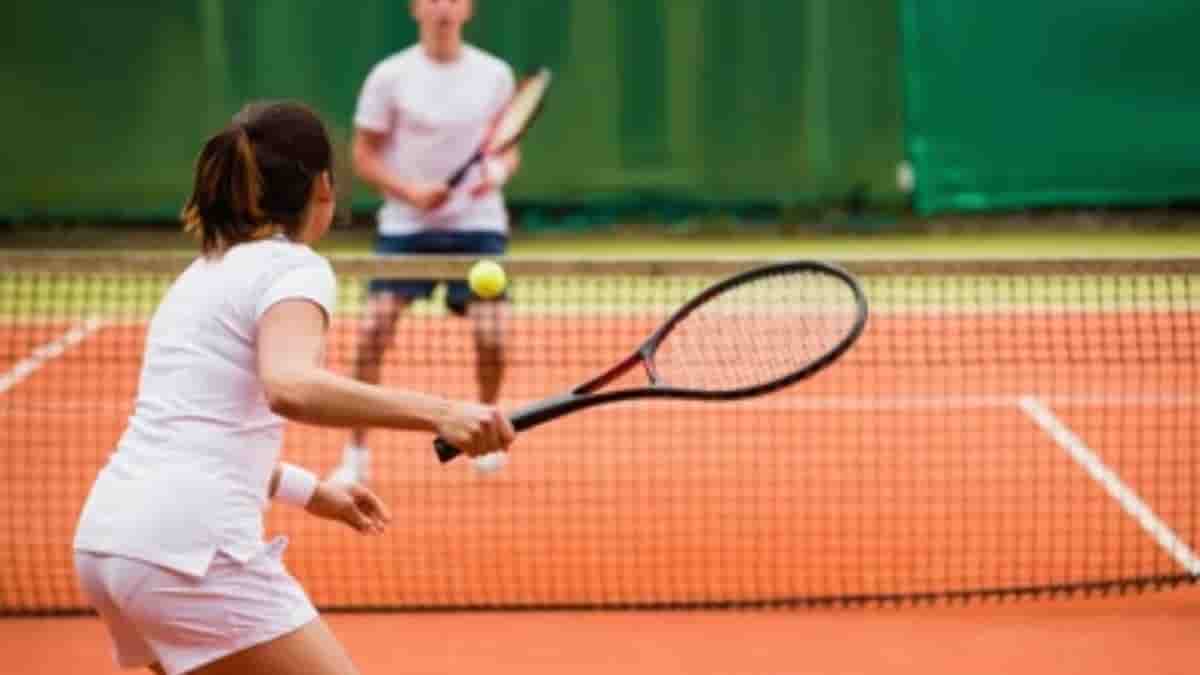Are you passionate about tennis and dream of pursuing a career in the sport? Tennis is a highly competitive and rewarding sport that offers numerous opportunities for those willing to put in the time, effort, and dedication. Whether you aspire to become a professional player, a coach, or work in the tennis industry, this step-by-step guide will provide you with valuable insights on how to make your career in tennis.
1. The Benefits of Pursuing a Career in Tennis
Tennis offers a range of benefits that make it an attractive career choice. It is a sport that promotes physical fitness, agility, and coordination. Playing tennis also helps in developing discipline, teamwork, and resilience. Moreover, a successful tennis career can provide financial stability and worldwide recognition.
2. Starting Early: Age for Tennis Training
Tennis is a sport that can be learned and enjoyed at any age, but starting early can provide a competitive advantage. Many professional players start their training in their early childhood or teenage years. The ideal age to start training for tennis is around 5-8 years old, as it allows young players to develop essential motor skills and hand-eye coordination.
3. Finding the Right Tennis Training Program
To embark on a successful tennis career, it’s crucial to find the right tennis training program. Look for reputable tennis academies or clubs that have experienced coaches and structured training programs. These programs should focus on developing technical skills, tactical understanding, physical fitness, and mental resilience.
4. Fundamental Skills and Techniques
To excel in tennis, it’s essential to master the fundamental skills and techniques. This includes learning proper grip, footwork, strokes (forehand, backhand, serve), volleys, and overhead shots. Regular practice and guidance from experienced coaches are key to honing these skills.
5. Developing Physical Fitness and Endurance
Tennis requires a high level of physical fitness and endurance. To prepare for competitive play, incorporate strength training, cardiovascular exercises, and agility drills into your training routine. Building core strength, speed, and stamina will enhance your performance on the court.
6. Mental Strength and Focus in Tennis
Mental strength is as crucial as physical fitness in tennis. Develop mental resilience, focus, and concentration through techniques like visualization, positive self-talk, and mindfulness. Overcoming challenges, handling pressure, and maintaining composure during matches are vital skills for a successful tennis career.
7. Balancing Education and Tennis Training
Balancing education with tennis training is important, especially for young players. Seek a school or educational program that is supportive of your tennis aspirations. Look for flexible schedules, online courses, or specialized sports schools that can accommodate your training needs without compromising your education.
8. Competitive Tournament Opportunities
Participating in tournaments is essential for gaining experience, improving skills, and showcasing your talent. Start with local and regional tournaments, gradually progressing to national and international levels. Competing against different opponents will expose you to various playing styles and help you gauge your progress.
9. Importance of a Strong Support System
Having a strong support system is crucial for a tennis career. Surround yourself with supportive family, friends, coaches, and mentors who believe in your abilities. They will provide guidance, motivation, and emotional support during the ups and downs of your journey.
10. College Tennis Scholarships and Opportunities
College tennis can provide a pathway to higher levels of competition and open doors for professional opportunities. Research colleges with strong tennis programs and consider pursuing a scholarship. College tennis allows you to continue your education while gaining valuable experience and exposure in the sport.
11. Transitioning to Professional Tennis
Transitioning from amateur to professional tennis requires careful planning and dedication. Consult with experienced professionals, coaches, and agents who can guide you through this process. Prepare yourself mentally, physically, and financially for the demands of professional tennis.
12. Networking and Building Connections in the Tennis Industry
Networking and building connections in the tennis industry are essential for career growth. Attend tennis events, workshops, and conferences to meet players, coaches, and industry professionals. Join tennis associations, online communities, and social media groups to expand your network and stay updated with industry trends.
13. Tennis Coaching and Off-Court Careers
If playing professionally is not your goal, you can still have a fulfilling career in tennis. Consider becoming a tennis coach, sports administrator, commentator, journalist, sports marketing professional, or sports psychologist. The tennis industry offers diverse career options that cater to different interests and skill sets.
14. Conclusion
Embarking on a career in tennis requires passion, perseverance, and a strong work ethic. By following this step-by-step guide, you’ll be equipped with the necessary knowledge and insights to make informed decisions and navigate the exciting world of tennis. Remember to stay dedicated, stay motivated, and enjoy the journey towards achieving your tennis career goals.
Frequently Asked Questions (FAQs)
- Q: What is the ideal age to start training for tennis?
A: The ideal age to start training for tennis is around 5-8 years old. - Q: Where can I learn tennis?
A: You can learn tennis at local tennis clubs, academies, or through private coaching. - Q: Can I pursue a tennis career while studying?
A: Yes, it’s possible to balance education with tennis training. Look for schools or programs that accommodate your training needs. - Q: Are there opportunities for college tennis scholarships?
A: Yes, many colleges offer tennis scholarships. Research colleges with strong tennis programs and explore scholarship options. - Q: What if I don’t want to play professionally? Are there other career options in tennis?
A: Absolutely! You can pursue careers as a tennis coach, sports administrator, journalist, or work in sports marketing, among other options.
Also Read: Step-by-Step Guide to Make Your Career in Badminton and Participate in International Competitions
“Get more sports news, cricket news, and football updates, log on to sportsdigest.in. Follow us on Facebook or Twitter and Subscr ibe to our YouTube Channel.”















